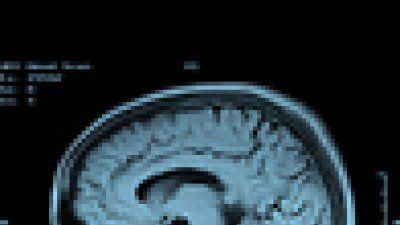University of California San Francisco
Give to UCSF-
-
UC Provides Resources on Proposition 30
<p>Voters in November will be asked to decide on Proposition 30, an initiative that would raise new state revenue through temporary increases in the state sales tax and the personal income tax on those who earn $250,000 or more per year.</p>

-
A Discussion with an HIV Counselor
-
Two More Yosemite Campers Struck with Deadly Rodent Virus
-
Bill Allowing Some Nurses to Perform Abortions Goes to Jerry Brown
-
News Briefs: Sheehy Reappointed to Stem Cell Board
-
Hantavirus: Be Careful, Not Fearful
Hantavirus, a potentially fatal virus transmitted by rodents such as deer mice, is making news following an unusual outbreak at a popular tourist area of Yosemite National Park. The recent cases are a reminder for campers to be cautious, but not necessarily fearful, according to UCSF infectious diseases expert Charles Chiu.

-
Governor's Proposed Pension Plan Does Not Apply to UC Employees
<p>UC’s pension plan and retirement benefits would not be affected by a plan unveiled by Gov. Jerry Brown and Democratic lawmakers according to Dwaine Duckett, vice president of Systemwide Human Resources.</p>

-
September Is National Infant Mortality Awareness Month
-
Living Longer: Increasing Lifespan May Be in Our Control
-
Malaria Nearly Eliminated in Sri Lanka Despite Decades of Conflict
Despite nearly three decades of conflict, Sri Lanka has succeeded in reducing malaria cases by 99.9 percent since 1999 and is on track to eliminate the disease entirely by 2014.

-
Immunological Genome Project Researchers Probe Every Type of Immune Cell
<p>Through the Immunological Immune Project, leading university immunologists and bioinformatics experts are probing genes to better understand how immune responses are coordinated. They aim to identify new ways to manipulate the immune system to better fight disease.</p>

-
Don't Use a Broom to Sweep Up Hantavirus Contaminated Dust
-
As Genes Learn Tricks, Animal Lifestyles Evolve
-
Pure, White, and Out of Print: How a Sugar Screed Became a Rare Collectible
-
Moore Foundation could spend $500 million over 10 years to reduce medical errors
-
ICU Study Awarded Grant from Moore Foundation
A multi-center study of intensive care units (ICU) led by UCSF faculty has received a Gordon and Betty Moore Foundation grant of $2.1 million. The study of ICUs, including two at UCSF, aims to better understand the nature of team-based care and patient involvement in ICU settings.

-
2012 Top Medical Schools
-
Doctor Shortage May Swell To 130,000 With Cap
-
Hopkins Aims to Make ICU Safer with $8.9 Million Grant
-
Living with Retinitis Pigmentosa
-
Interprofessional Education Expert Seeks to Improve Health Care
<p>Scott Reeves, PhD, director of UCSF’s Center for Innovation in Interprofessional Education, takes the national spotlight in Washington, DC, this week as co-chair of an Institute of Medicine (IOM) workshop that aims to improve health care.</p>

-
Helping Children Cope with Grief Over a Miscarriage
-
Pediatricians Decide Boys Are Better Off Circumcised Than Not
-
New Recruitment Service Helps Find Patients for Clinical Trials
<p>Many clinical trials fail to meet recruitment goals. To meet the challenge, UCSF has launched a Participant Recruitment Service and a Research Participant Registry.</p>

-
James Holmes Told a Friend He Was "Bad News" Weeks Before the Aurora Massacre, Report Says
-
Coursera Partners with Amara for Crowdsourced Captioning
-
Stigma of H.I.V. Is a Barrier to Prenatal Care
-
When the Mango Bites Back
-
UCSF, Mayo Team Discovers Genomic Variant That Increases Risk of Brain Tumors
People who carry a “G” instead of an “A” at a specific spot in the sequence of their genetic code have roughly a six-fold higher risk of developing certain types of brain tumors, according to a study by researchers at UCSF and Mayo Clinic.
